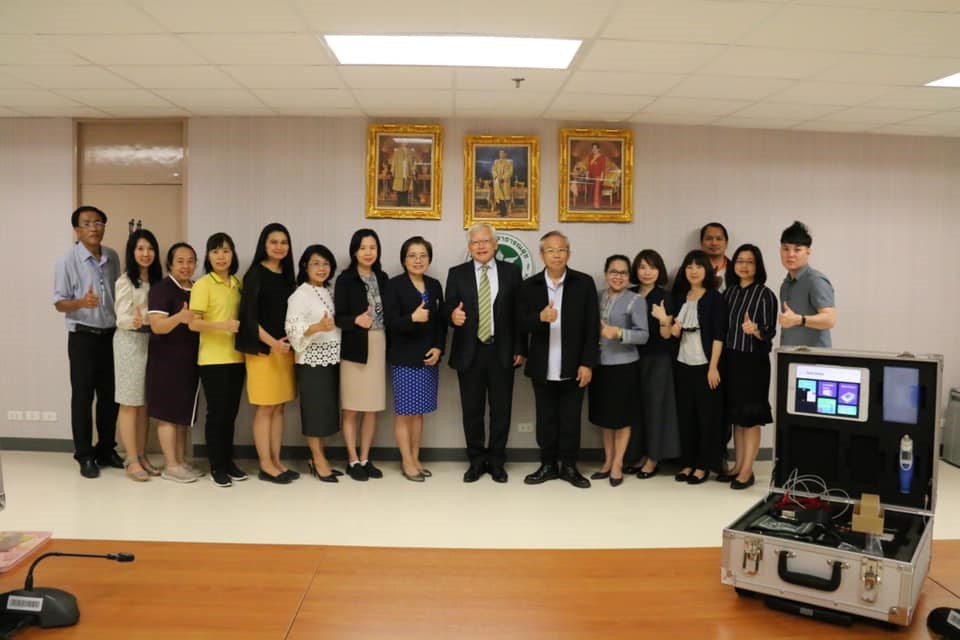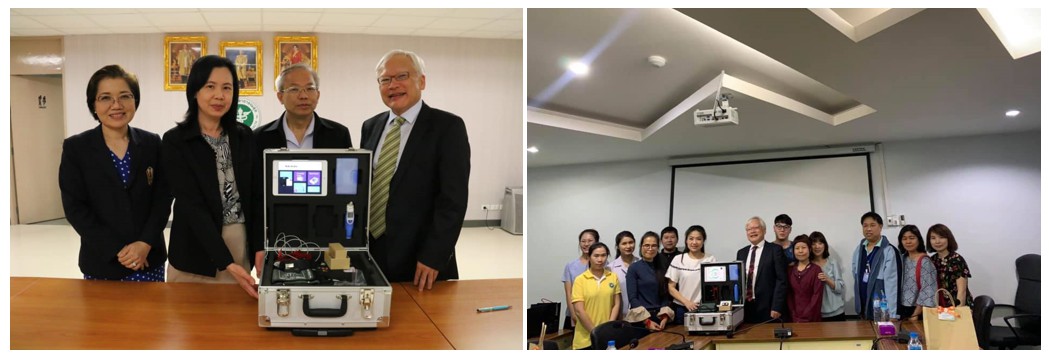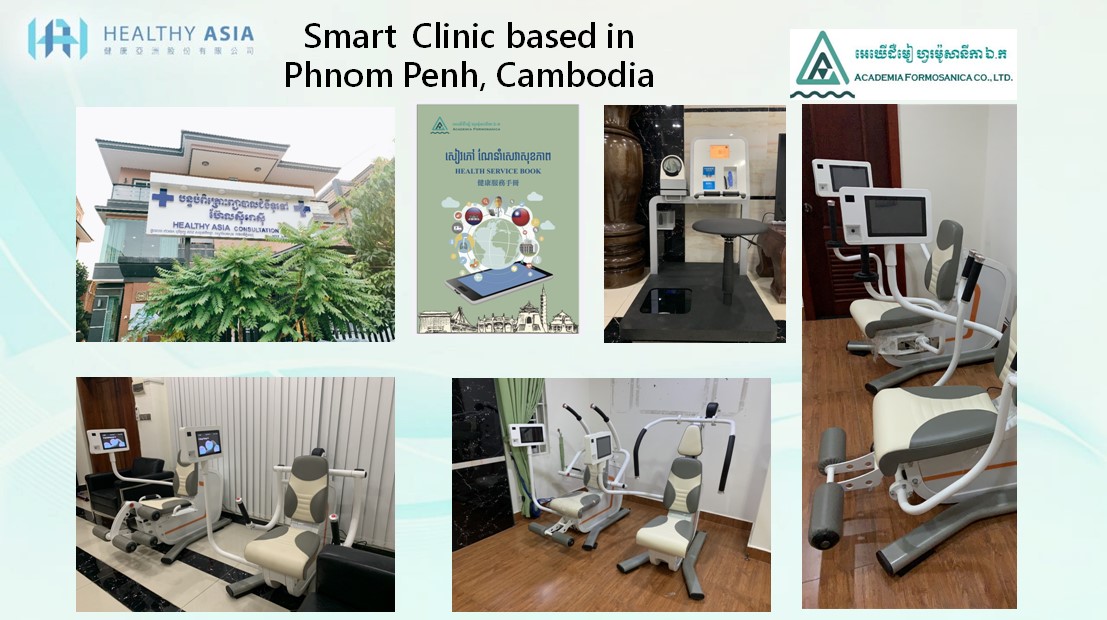Transmembrane and Coiled-Coil Domain 1 Impairs the AKT Signaling Pathway in Urinary Bladder Urothelial Carcinoma: A Character...

Author(s)
Duu-Jian TsaiBiography
Prof. Duujian Tsai has been honored with Thailand’s Mental Health Award and Taiwan’s Futuretech Breakthrough Award. He is renowned for successfully establishing a Taiwanese medical and technological platform to support ASEAN countries.
Academy/University/Organization
Pingtung Christian Hospital-
TAGS
-
Share this article
You are free to share this article under the Attribution 4.0 International license
- LIFE SCIENCES
- Text & Image
- September 24,2020
While the world is besieged by the threatening COVID-19 pandemic, there is a window of opportunity for Taiwan to share the strength and benefits of our medical experience. At the same time, under threat are new challenges of sustaining human welfare and global medical development. The research team of the Taiwan-Thailand Medicine, Humanities, Science and Technology Innovation Center, with a research scope extending to the five sub-centers of Thailand, Indonesia, Vietnam, Cambodia and Taiwan, has identified some universal approaches to fighting COVID-19 with a context-contrasting methodology by exploring various outcomes and achievements. We have developed a long-distance, hospital-based, decentralized health-care and medical service model to manage differentiated threats to medical centers and communities. This model has not only provided anti-COVID 19 control strategies for these countries, but has also evolved into a brand-new blueprint for developing future medical services in Taiwan. Furthermore, this paradigm shift has transformed the landscape of preventive medical treatments as the best precision medicine and smart health application.

The global COVID-19 pandemic has not yet begun to diminish. It is expected that more than three hundred million people could be infected, with causalities close to one million. At the same time, there is a window of opportunity for Taiwan to share her effective infection-control experience, mainly with the strategy of strict border control and the usage of smart information technologies, health-care services as well as the health insurance system. However, the ever-worsening global pandemic trend has generated greater challenges for medical development, and even human well-being in the world. Nonetheless, it is expected that Taiwan may suffer similar pandemic scenarios in the coming autumn and winter. The most critical issue will be to address the current pandemic as well as the post-pandemic health needs.
The research team of the Taiwan-Thailand Medicine, Humanities, Science and Technology Innovation Center, with a research scope extending to the five sub-centers of Thailand, Indonesia, Vietnam, Cambodia and Taiwan, has identified some universal approaches to fighting COVID-19 with a context-contrasting methodology by exploring various outcomes and achievements.
Some significant findings are identified by assessing threats to hospitals and communities in each of the five countries. At Bangkok headquarters and the Chiang Mai sub-center, we found that although not strictly terminating international flights, Thailand has shown effective COVID-19 control strategies, partly due to the hot weather and partly by enforcing strong restrictive measures in communities. Before the global pandemic erupted, we sent three tele-medicine sets to our major partners in Thailand. Our comprehensive smart sport and rehabilitation equipment has been adapted by local enterprises as well. 
Solid foundations for further collaborations are in place. In Indonesia, our tele-medicine collaboration plan has been unexpectedly terminated due to very rigid international pandemic-related regulations. Over there, less suffering from the COVID-19 pandemic is in sight as a result of the hot weather and strong border control. Lately, threats came to Indonesia mainly due to the Muslim Ceremony in the fasting month, starting from Malaysia. Both community and hospital outbreaks were evident. However, the situation has not been worsening as it has in some European countries thanks to the hot weather. Vietnam is a country under very rigid international and community quarantine programs. As a consequence, our collaboration plans for tele-medicine and smart rehabilitation are also postponed. Owing to the valuable lesson from the previous SARS outbreak, Vietnam has shown leading competence in global pandemic control. Although a brief outbreak occurred due to the open-door tourism measure in Da Nang, it has been well recovered by restoring a closed door policy. Our team established a comprehensive smart clinic in Cambodia before the global pandemic outbreak.

A medical team from Taiwan has been there since then. We have also kept close mutual exchanges with officers under the Ministry of Health. There is no ban on international flights and, even more, Cambodia is willing to provide humanistic aid to international cruise ships. The country has been good at using its weather advantage to develop an effective COVID-19 control strategy despite insufficient medical resources in general. Finally, we in Taiwan have successfully established a model community, with smart rehabilitation facilities and individual monitoring systems, as the demonstration site for pandemic control since the SARS outbreak. As requested by a returned overseas Taiwanese businessman from Cambodia, we have also established a tele-medicine consultation and demonstration site in the downtown area of Taipei city, and we have proposed a complementary solution for protecting the health delivery system for the post-pandemic era by mobilizing day-care centers and quarantine hotels, serving as complementary facilities for our health delivery systems. To summarize, tele-medicine, cloud monitoring, and normalizing an infection prevention lifestyle has become an international universal trend and also a part of Taiwan’s medical niche in the global market.
Through identifying different threats for communities and hospitals in different countries, we have proposed a hospital-based decentralized model for tele-medicine and health maintenance. This model will not only formulate different pandemic control strategies for each country, but also reward Taiwan with a brand-new blueprint for developing future medicine. Furthermore, this horizon for a paradigm shift will enable the best approach to illness prevention with precision medicine and smart health applications.
STAY CONNECTED. SUBSCRIBE TO OUR NEWSLETTER.
Add your information below to receive daily updates.




